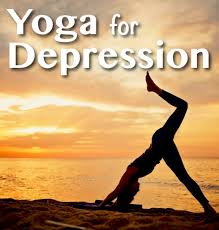
Yoga and Pilates are excellent options for those looking to change up their exercise routine. You may wonder which one is right for you. There are many factors to consider. Below are the benefits and how you can benefit from each type of exercise. Learn more to determine which option is right for you.
Both types focus on mind/body connection. Pilates focuses more on the body and mind. While both emphasize mind-body connection, they use different types of equipment. Pilates is the perfect exercise for you, no matter if you want to do a relaxing, rejuvenating, or intense cardio workout. While both types of exercise have pros and con, they are all similar enough for you to decide which one you prefer.

There are different benefits to each type of exercise. It all depends on your goals. Each type of exercise is beneficial. To make the best decision about which type of fitness you are looking for, it is important to identify what it is that you need. Each form has its pros and cons. You may be new to exercise and wonder if Pilates might be the right choice for you.
Pilates and yoga have many similarities. Both are slow and controlled, making them great for treating specific injuries. Both increase balance and flexibility. Both can be very beneficial for many different health conditions. It's best to speak with a doctor before you choose one. You should choose the one that suits you best when it comes to choosing between the two.
Both of these methods are great options for people suffering from mental illness. If you are looking to improve your mental health, yoga is a great option. While Pilates focuses on the physical body, yoga focuses on your mind. Both methods aim to relax the mind and body, which is essential for mental health. A healthy balance of both can improve someone's mood and decrease their chances of getting psychological illnesses.

Both of these methods of exercising can be very beneficial for people suffering from mental illness. While Pilates is concerned with the physical aspects, yoga is focused more on the mental. It emphasizes muscle flexibility and strength, and is great for those who are recovering from traumatic experiences. Unlike yoga, Pilates uses special mats. These mats can be used for exercises such as sit-ups or push-ups.
FAQ
How can I prevent mental health issues?
Preventing problems with mental health is much easier said than done. Here are some things to keep in your mind.
-
Don't drink alcohol. It can alter your moods and increase your chances of developing depression.
-
Avoid using drugs. Drugs can affect your brain chemistry and make you feel worse.
-
Get enough sleep. Depriving yourself of sleep can lead to anxiety and depression.
-
Exercise regularly. Exercise makes you feel happy and releases endorphins.
-
Consume healthy food. Do not eat junk food. You will feel lethargic and depressed.
-
Spend quality time with those you love. Spending quality time with the people you love can lift your mood.
-
Have fun. Have fun with your life.
-
Social media can be exhausting. Social media sites can make people feel lonely and isolated.
-
Take care of yourself. Treat yourself nicely, even if you aren't feeling great.
-
Ask for help. If you're having trouble coping, then ask for help. Talking to someone you trust can be a help.
-
It's okay for you to cry. Crying helps to relieve tension and stress. It does not mean that anything is wrong.
-
Keep busy. Try to find something you like.
-
You should practice good hygiene. You can feel unattractive and unkempt if you don't maintain good hygiene.
-
Stay connected. Stay positive by connecting to others.
-
Learn how to relax. Relaxation techniques such as meditation and yoga can help you to cope with stress.
-
Find meaning in what your do. You can find fulfillment in your hobbies and work by finding meaning.
-
Focus on the present moment. You won't worry about the future if you are focusing on the moment.
-
Set goals. It can be motivating to set goals.
-
Do something nice to yourself. Your self-esteem can be raised by doing something kind for yourself.
-
Practice gratitude. Gratitude will help you appreciate all the positive things in your life.
-
Volunteer. Volunteering is a great way to have fun and make a positive impact in the world.
-
Give back. Giving back can help you feel fulfilled.
-
Watch out for warning signs. Don't be afraid to ask for help if your behavior changes.
Why is mental health so important?
Work, play. Learn. And love. Mental health refers to our overall wellbeing. Mental health refers to the many factors that affect us daily, including our physical, psychological, spiritual, social, and environmental well-being. The good news? There are many ways to take care of yourself mentally. You don't have to do everything at once; just start somewhere!
Understanding where you are now is the first step to improving your mental health. Take this quiz and find out how much you're doing to support your mental wellbeing. If you're not satisfied with your results, you might consider making lifestyle changes.
Let's say you got a high score. Congratulations! Let's now look at what you can do to maintain or improve your mental health.
-
Get enough sleep Get enough sleep to keep your brain alert and stimulated. Get at least 7 hours of sleep every night according to the American Academy of Pediatrics.
-
Exercise Regularly. Exercise releases endorphins in your body which makes you happier and less likely to stress. Try to do 30 minutes of exercise five days a week.
What is Positive Psychology? Why is it Important?
Positive psychology focuses on what makes us feel better about ourselves, such as happiness, optimism, gratitude, hope, love, kindness, compassion, forgiveness, courage, humility, curiosity, empathy, spirituality, and meaning. The goal of positive psychology is to help individuals become happier, healthier, and wiser through self-improvement.
There are two types, trait positive psychology and positive process psychology. Trait positiv psychology examines the way people naturally behave. Process positive psychology studies how we can use certain strategies to achieve specific goals.
Are there any problems with me if my depression is persistent?
Teens are often affected by depression. It's important to remember that depression is a common problem among teens.
This doesn't mean that you're crazy or weak. Most people who are depressed aren't aware of it. Depression is a medical condition.
There are many types of depression. Some people experience only sadness. Other people may experience other emotions as well. There are different degrees of severity.
Some people experience mild depression, while others have severe cases. It's important to understand that depression isn't always bad. Sometimes, it helps us cope with stressful events.
If you feel constantly tired or sad, consult a doctor. Your doctor will be able to diagnose you and determine if you need treatment.
These are 5 ways to improve your mental and/or emotional health.
-
Exercise – This is a great way to improve brain function and increase energy levels.
-
Sleep - Getting enough sleep helps reduce stress and anxiety.
-
Nutrition - Eat healthy foods such fruits and veggies to keep your body strong, energized and happy.
-
Meditation – Regular meditation can reduce stress and anxiety.
-
Socialization - Spending time in the company of friends and family keeps us happy.
Statistics
- Similarly, while there is some agreement about the boundaries of typical mental disorders 2, there is likely less agreement about those for positive mental health. (ncbi.nlm.nih.gov)
- More than 50% will be diagnosed with a mental illness or disorder at some point in their lifetime.3 (cdc.gov)
- In any given year, an estimated 18.1% (43.6 million) of U.S. adults ages 18 years or older suffered from any mental illness, and 4.2% (9.8 million) (healthypeople.gov)
- It means no drinking any alcoholic beverages and no taking any drugs that aren't 100% natural.
- Appropriate nutrition and exercise are likely among the most efficacious and cost-effective positive mental health interventions. (ncbi.nlm.nih.gov)
External Links
How To
How to Care for Autism-Affected Children
Autism spectrum disorder (ASD), is a neurodevelopmental condition that causes impairments in social communication and repetitive behaviours. ASD is a condition that affects one out of 50 people in the world. There is no treatment.
Symptoms usually begin around 18 months of age in infanthood. The most common signs include difficulty understanding others' emotions, lack of eye contact, problems with language development, and difficulties in learning new skills. These symptoms can sometimes lead to serious behavioral issues such as self-injury, aggression, anxiety, depression, and sleep disturbances.
This disease is not currently understood, but researchers believe genetics could play a role. ASD may be caused by factors like infection, stress, obesity, drugs, vaccines or alcohol. Some viruses such as rubella, measles and others may also increase the risk of developing ASD later.
Early diagnosis and intervention are key to improving outcomes. Many families struggle with their child’s behavior after they turn 18. There are many treatment options available depending on how severe the symptoms are and what type of support is required. Research has shown that therapies that focus on social interaction and reducing problematic behaviors can make an impact.